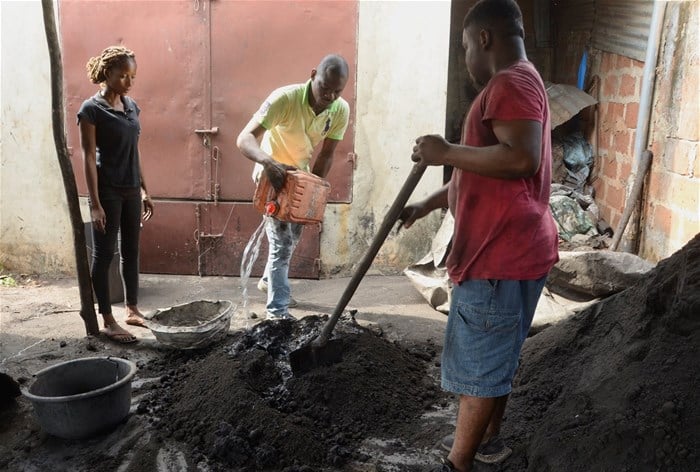
Top stories



LifestyleWhen to stop Googling and call the vet: Expert advice on pet allergies from dotsure.co.za
dotsure.co.za 2 days

AutomotiveHilux Custom Builds offers purpose-built solutions for your business
Toyota South Africa Motors 2 days

Dismayed at the endless convoys of trucks carrying piles of charcoal out of the West African nation's forested back country, the 36-year-old entrepreneur was inspired to look for a more sustainable alternative in 2017.
Wood charcoal is the second main source of cooking fuel in Benin and demand is rising. The country turned over 3.3 million tonnes of wood into charcoal in 2017 versus 2.5 million tonnes in 2010, according to World Bank data.
"We're told to fight deforestation and yet all these sacks of charcoal are being shipped to our towns," Adjovi said at the headquarters of his business called Eco Sika, where his small team now make briquettes from agricultural waste.
"We also have rice husks that we use, banana peel, pineapple skin - if we find it, we turn it into sustainable charcoal."
Over 60% of the world's charcoal is produced in Africa, where it is sourced mainly from forests and woodlands, driving forest degradation, the United Nations food agency (FAO) said in a 2017 report.
Only a small volume is produced sustainably, according to the FAO. Adjovi is among those trying to change this.
He and his employees collect, sort and dry the organic waste before burning it into a carbonised powder that is processed into briquettes and sold by the kilogram or in larger sacks.
Demand has grown through word of mouth, he said.
"With just a small amount, I cook for my four children and me and there's still some of it left over. It's more economical than wood charcoal," said Nicole Guelley, 30, as she stirred a pot of beans on a small stove burning Eco Sika fuel.
This kind of innovative charcoal production is "urgently required to prevent further forest degradation and loss of biodiversity," the UN Environment Programme said in a 2022 brief, which also highlighted similar projects in Ethiopia, Cameroon, Kenya and Tanzania.

Reuters, the news and media division of Thomson Reuters, is the world's largest multimedia news provider, reaching billions of people worldwide every day.
Go to: https://www.reuters.com/